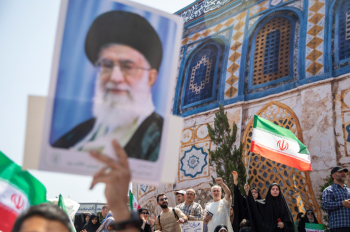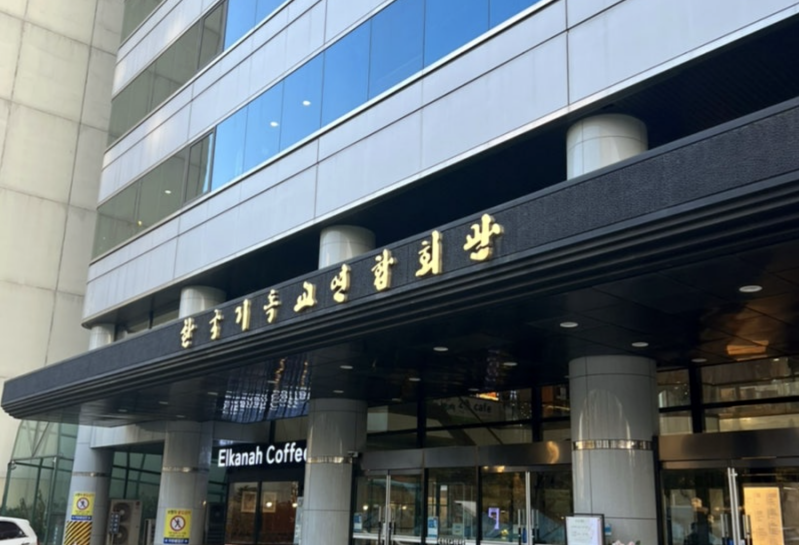
Editor’s Note: An earlier version of this article included a reference to the spouse of one of the individuals mentioned, despite the fact that she had no connection to the issues discussed. Christian Daily International regrets this inclusion, has sent an apology to her, and has removed all references to her in this article.
***
Even before the World Evangelical Alliance (WEA) officially announced its next General Assembly in Seoul, Korea from October 27-31, 2025, news of the plans has been met with criticisms by Korean church groups who called for the preparations to be put on hold until their concerns about certain WEA leaders and the organization’s theological views are addressed. While the two first statements focused primarily on questions around pluralism and syncretism due to WEA’s engagement with Catholics, ecumenical and Muslim groups, the latest statement highlighted newly emerging concerns about two specific leaders.
On Sunday, SaRang Church in Seoul announced a thanksgiving worship service to mark the launch of the “2025 WEA Seoul General Assembly Organizing Committee” on Friday (Nov. 15). Rev. Junghyun “John” Oh, Senior Pastor of SaRang Church, is expected to lead the preparations for the next WEA GA with support from Yoido Full Gospel Church, the largest Pentecostal church in the world. Yoido’s Senior Pastor Younghoon Lee will deliver the sermon during the ceremony.
As previously reported by Christian Daily International, already on Sunday, a Korean Christian media wrote an in-depth article about issues related to the planning process so far, in which WEA leaders had months-long discussions behind-the-scenes to secure a hosting partner and financial support for its next GA. While WEA normally works through its national member Alliance as primary hosting partner representing a variety of evangelical denominations, the planning in Korea raised eyebrows because it focused on a single church that has no direct relationship with WEA and reportedly did not involve the evangelical associations that have historically been members of the global body.
In addition to the concerns about the process, the news again brought out some of the long-standing concerns among the largely conservative churches in Korea about WEA’s theology.
WEA’s former national member body, the Christian Council in Korea (CCK), as well as a group of 1,000 pastors, elders and professors led by Kwangshin Theological Seminary, a Presbyterian theological institution related to Korea’s largest denomination HapDong, issued separate statements calling for the GA to be put on hold until their questions about the WEA’s stance with other faiths and perceived liberal courtship with ecumenical bodies are addressed.
“Religious syncretism and pluralistic actions”
In his statement on Monday (Nov. 11), CCK President Rev Seo-young Jeong criticized the plans for the potential to create greater disunity amongst the Korean evangelical community at a time when the WEA is purposed to unite believers.
The strongly worded statement called for the GA plans to be put on hold to allow time for “theological verification” of the WEA regarding the religious pluralism concerns, and cautions that without such a process, the WEA GA could “face even greater division and opposition than that encountered during the 2013 World Council of Churches Assembly [in Busan].”
“Certain pastors, driven by desire for position and honor, are intensifying division within the Korean church by plotting to host the WEA General Assembly in Korea,” read the CCK statement.
At issue are concerns around “religious syncretism and pluralistic actions” as well as “theological ambiguities” by past and present WEA leaders. CCK pointed to the “the widespread perception among Korean Christians equating the World Council of Churches (WCC) with the WEA” and said there should be conversations where WEA could clarify its position.
CCK was the national member Alliance and host partner for the WEA General Assembly in 2014, which was ultimately canceled due to divisions within the Korean Church following the WCC assembly. In its statement, CCK said that back then, the WEA “sought a united Korean church for the assembly, not one marked by division.”
“With the WEA’s pluralistic tendencies now even more pronounced, hosting the WEA Assembly in a way that risks further church discord is undesirable, and we cannot stand by and watch as division deepens,” Jeong said.
“While they previously wished to hold the assembly within a united and harmonious Korean church, they now seem ready to overlook the church’s division as long as financial support is secured. Church leaders, who are supposed to promote unity, turning a blind eye to division in pursuit of wealth, is disgraceful.”
1,000 Christian leaders say no engagement possible with the WEA
On the same day as the first CCK statement (Nov. 11), a group of 1,000 Korean professors, pastors and church elders led by Kwangshin Theological Seminary published a full-page advert in Kukmin Daily, a Korean church newspaper, with a statement titled “Reasons Why the Korean Presbyterian Church HapDong Cannot Engage with the WEA.”
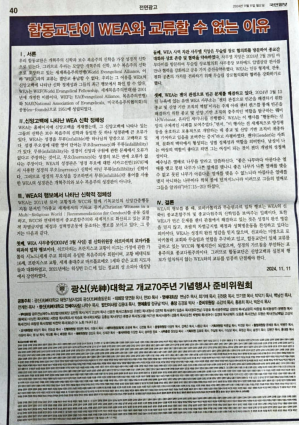
It laid out several arguments why the HapDong denomination – which SaRang Church belongs to – disagrees with the WEA on key theological issues.
Firstly, the signatories state that they consider reformed theology and conservative theology as the “most biblically faithful theology.”
“Therefore, we cannot condone any engagement with the World Evangelical Alliance (WEA), which superficially presents itself as reformed and conservative evangelical in theology,” they said, referring to WEA’s “theological identity, as reflected in its confession of faith, and its recent activities.”
The signatories argue that the statement of faith on the WEA website “may seem similar” to conservative evangelical theology but contains “significant errors in its view of Scripture.”
“The WEA affirms the Bible as the ‘infallible’ word of God. The terms ‘inerrancy’ and ‘infallibility’ are distinct in English. ‘Infallibility’ asserts that Scripture is without error in matters of faith and salvation, while ‘inerrancy’ claims it is without error in all respects,” they say.
The WEA’s view, according to the signatories, aligns with “infallibility,” not “inerrancy,” as upheld in the 1978 Chicago Statement on Biblical Inerrancy. They believe that the difference in views between conservative and progressive evangelicals has led to “significant disparities in the practice of faith.”
“The Chicago Statement asserts that ‘some traditional evangelicals rejected historical-critical studies of the Bible altogether, using complete inerrancy as a measure to differentiate between evangelical and non-evangelical beliefs,’” added the signatories.
“Considering the theological distinctions between infallibility and inerrancy since the 20th century, the WEA’s use of ‘infallibility’ is not consistent with the Reformed and conservative evangelical view of Scripture.”
Furthermore, the professors and their peers oppose the WEA cooperation with the World Council of Churches (WCC) and with the Vatican, which are similar concerns as those raised by CCK.
They gave examples of ecumenical activities by former WEA Secretary General Dr Thomas Schirrmacher, such as endorsing the WCC mission declaration at the WCC Assembly in the Korean city of Busan.
“The WEA’s emphasis on social responsibility aligns with the WCC’s support for religious pluralism, the global spread of inclusive anti-discrimination laws, and movements related to sexual revolution,” stated the signatories.
They pointed to Schirrmacher’s “close ties” with the Roman Catholic Church and the Eastern Orthodox Church, and also criticized a recent visit by WEA Deputy Secretary General Samuel Chiang to the Secretary General of the Muslim Elders Council, Judge Mohamed Abdelsalam, in Abu Dhabi in February 2024 for the purposes of interfaith dialogue and cooperation.
Referring to Matthew 12:33, “a tree is known by its fruit,” and Matthew 7:15-20, “beware of false prophets,” the signatories accuse the WEA of “syncretism and religious pluralism” by its ongoing close association with both the Roman Catholic Church and Muslims.
In conclusion, the signatories state, “We are confident that our denomination’s assertion that ‘WEA is an organization with which we cannot fellowship’ is rooted in sound doctrine (2 Timothy 4:3). The WEA’s theological stance is inconsistent with reformed and conservative evangelical doctrine, and our denomination should sever ties with the WEA due to its misalignment in faith and practice.”
Additional comments made by a Kwangshin professor were also critical of Rev. Sangbok David Kim who had been instrumental in mediating between the WEA and SaRang Church, pointing out that he should be considered an ecumenical rather than an evangelical leader due to his past remarks about uniting the WEA, the WCC and the Roman Catholic Church.
Other national alliances queried “ecumenical attitudes”
WEA has faced similar criticism from other national Evangelical Alliances in the past. In 2017, Evangelical Focus reported about an 14-page open letter published jointly by the Italian, Spanish and Maltese Evangelical Alliances where they expressed concerns about “perplexing signs indicating significant changes taking place in [WEA’s] theological DNA.”
“The historic positions on biblical unity (among born-again Christians) and biblical confrontation of errors (deviant teachings and practices) that the Alliance has stood for over a hundred years seem now to be eroded and replaced by ecumenical attitudes that revolve around a kind of ‘unity’ that is in conflict with historic evangelical convictions,” wrote the Alliances at the time.
Furthermore, the Alliances accused the WEA of progressively implementing “an ecumenical agenda without proper discussion at a grassroots level and without involving the different parts of the Alliance in the decision-making process.” They reminded the WEA that the global body had originally been formed in 1846 as a “bulwark against Protestant theological liberalism, Roman Catholicism and Eastern Orthodoxy, which were considered incompatible with basic gospel truth.”
The WEA responded with a statement on its website, saying “evangelical-Catholic relations are a highly sensitive issue for evangelicals in many parts of the world […].” It acknowledged “a deep-seated, ongoing concern about the WEA’s intra-faith relations and particularly its relationship with the Roman Catholic Church” and a “fear that too close a rapprochement and collaboration with the Catholic Church could undermine our ability to articulate the historic evangelical faith in an uncompromised way.”
While the WEA statement said, “We do not believe that we have changed, betrayed, or compromised the WEA’s theological principles in doing so,” they also said, “We recognize a need to be more proactive in communicating with our constituency about our activities.”
Concerns about a lifelong member of the board
Yesterday (Nov. 13), however, CCK issued a further statement raising additional concerns about material that has been circulating online related to two long-time WEA leaders. One of them relates to a family issue that has come into the public view that sheds a potentially problematic light on one of the leader’s Christian character and faith. The second suggests the current head of the WEA may be connected to the New Apostolic Reformation, a movement that is viewed critically in Korea and elsewhere.
The two leadership figures that CCK highlighted are John E. Langlois, “member emeritus” of WEA’s International Council, and WEA Executive Chair Goodwill Shana, both lawyers by profession.
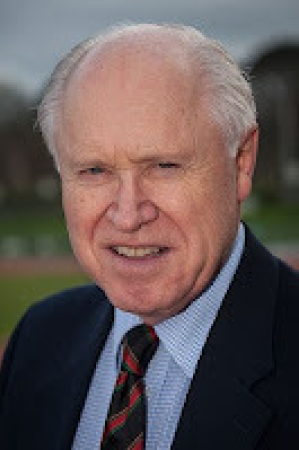
Regarding Langlois, the CCK referred to his son Mark’s YouTube videos, Facebook and Instagram posts and a fundraising page where he describes his father as a “narcissist” and levels other allegations against him. On his social media channels, Mark Langlois speaks about his emotional abuse trauma of being scapegoated in the family and offers advice to those experiencing similar situations.
Narcissistic behavior is considered contrary to a life of the gospel because a person views themselves as beyond reproach while blaming any mistake on a person they identified as scapegoat, whether in the family, an organization or other social environment. The CCK statement called the behavior “cult-like or heretical,” and pointed to Mark Langlois’ comment “that individuals with moral failings like his father should not hold high-ranking positions in the WEA.”
John Langlois has served in various leadership roles in the WEA since 1969 and is now described as “lifelong” member of the International Council. Although the WEA bylaws require members to step down after serving two six-year terms before they can serve another term, the ‘member emeritus’ status means that Langlois is automatically elected without vote at each GA and has continuously served on the IC for some two decades or more.
Questions about the New Apostolic Reformation
In regard to Shana, the CCK spoke of “allegations” against him for involvement in the controversial New Apostolic Reformation (NAR). The Korean organization referred to a website narconnections.com, which lists Shana as a member of the movement.
Shana has served as Executive Chair in the WEA for the past seven months, a dual role that raised concerns about the combination of governance and executive authority, which he is now expected to continue to hold until the General Assembly.
After Dr Thomas Schirrmacher resigned from his role as Secretary General on March 31 citing health reasons, the WEA announced that Shana who served as the Chair of its International Council would take over leadership of the WEA as “Executive Chair” for an interim period “not exceeding six months.” On Sept. 18, however, the WEA announced that Shana would continue in his dual role as board chair and acting Secretary General / CEO for more than one year longer, up until the GA in October 2025. The WEA has yet to announce the search for a new Secretary General.
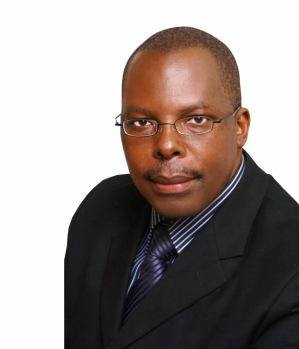
In its statement about the NAR concerns, CCK references YouTube videos for Shana’s church network, Word of Life International Ministries (WOLM), in which he is called an Apostle. “Critics argue that this title, given only to key leaders in the NAR, along with Shana's teachings in his gatherings, align with NAR practices and heretical teachings,” stated the CCK.
While NAR teachings cannot always be easily identified, they usually have an overemphasis on themes like revelation, dominion and prosperity.
In one of Shana’s sermons available online and titled “Building the Church of God by Revelation”, he speaks of the goal of being a “person of revelation” in the workplace, which will help believers rise “to the top of the food chain.” Referring to Daniel 5, he talks about revelation covering believers with authority: “You'll be clothed with scarlet and every chain of gold. Revelation will give you prosperity and status in life and you shall be the third ruler in the kingdom.”
“Revelation gives you a dignity, revelation gives you prosperity, revelation gives you dominion,” Shana said elsewhere in his sermon.
The CCK called upon the above allegations made against both WEA leaders to be “investigated urgently” and “if the claims are substantiated, both leaders should immediately step down.” The group also expressed unease about the idea of planning an event in Korea “with WEA figures under such suspicions.”
Christian Daily International has approached WEA for comments by the organization or the leaders but has not received a response by the time of publication.
